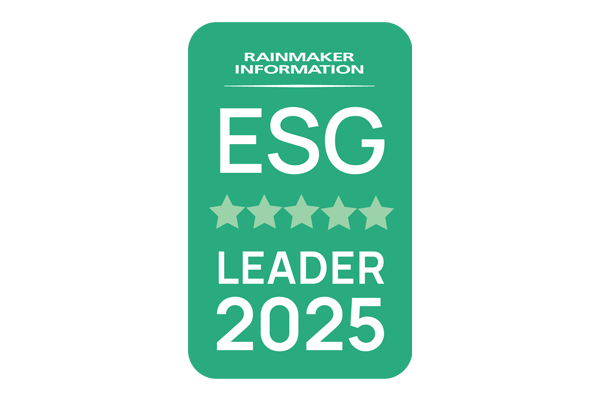Responsible Investment Report 2025
We believe that our responsible investment approach helps manage risk, supports long-term investment returns, and is consistent with our duty to act in members’ best financial interests.
1 Material ESG risks are those that are likely to affect business or investment performance.
Watch our short video to learn more about how we approach responsible investing.

We believe that our responsible investment approach helps manage risk, supports long-term investment returns, and is consistent with our duty to act in members’ best financial interests.



2 As at 18 November 2025, our Responsible Investment Policy does not apply to cash, derivatives or overlays.
At Cbus, responsible investment means considering Material ESG risks and opportunities as one input in the investment decision making process (integration), using active stewardship (voting and engagement) to protect and preserve value for our members, and shaping the systems we operate in, through public policy and regulatory advocacy.
Our approach to responsible investment varies depending on the investment strategy, asset class and how investments are managed (internally, or externally via a mandate or pooled vehicle). This means the implementation of responsible investment may be tailored within and between asset classes, investment strategies and investment structures.
All business activities, sectors, and asset types across the economy may be exposed to Material ESG risks and opportunities in different ways.
We aim to apply our integration approach which involves a variety of activities, including investment manager and asset selection and monitoring processes, investment manager ratings and investment monitoring with third-party data support.
While integration is preferred, there are circumstances where we may consider exclusion of a sector or a specific asset type or stock from the Fund’s investment portfolio having regard to members’ best financial interests.
Please refer to the ‘Our approach’ section below for further information regarding our approach to exclusions.
Our stewardship activities include advocacy, the suite of rights attached to our shareholdings, and engagement with investee companies with the goal of protecting and preserving value for members’ retirement savings.
Either directly or alongside others, we support the shift towards a more effective and sustainable finance system by encouraging the development of standards, guidelines and regulatory reform. We also aim to advocate for policy settings that protect our members’ retirement savings from systemic environmental and social impacts.
Through voting and engagement, we aim to improve practices so that the companies that we invest in are better run, and therefore better positioned to provide more sustainable long-term investment returns.
Further information about our stewardship process including our partner organisations and initiatives, and our Stewardship Statement, can be found under the ‘Our approach’ section below.
We have identified a set of portfolio-wide ESG priorities for increased focus across our integration, stewardship and research, as we work to protect and preserve member value.
These priorities generally represent a systemic risk to our portfolio, are the subject of regulation, or are closely linked to our members and the industries they work in. Our current portfolio-wide priorities are climate change, nature and biodiversity loss, modern slavery, workplace health and safety, and investing in the real economy.
We work to ensure our priorities continue to align with our members’ best financial interests through time and we scan the horizon so we are aware of issues that will become prominent into the future.
We use a wide range of research and data to measure, support and evolve our evidence-based approach. Our strategies and approaches are underpinned by an assessment of best practice coupled with a view of what is fit for purpose for the Fund.
We measure our activities and report on our progress, so our members can be confident that we do what we say we do.
We recognise that through partnership and collaboration we can share knowledge and learnings and protect our portfolio from systemic risks.
Our Responsible Investment Policy (PDF) sets out our general approach to responsible investment and we are guided by the Board Governance Framework.
Our approach
As an investor within the financial system, we have a focus on financial risks as we work to protect our members’ long-term investment returns.
We recognise, however, that the financial system is also connected to social and environmental systems. This means our investments are exposed to the volatility and performance consequences of economy-wide environmental and social impacts. These impacts are called systemic risks – risks that flow and cascade through society and the economy, impacting the companies and assets we invest in, and the industries our members work in.
Responding to systemic risks (such as climate change) requires public policy and regulatory responses, driven by governments and global organisations such as the United Nations.
We consider advocacy to be a key pillar of our responsible investment approach. Advocacy allows us to contribute to the development of the public policies, regulations and standards that are needed to reduce systemic risks and their financial impacts. This offers potential to shape the systems in which we operate and invest, which may drive better outcomes for our members.
For more information see our Responsible Investment Report (PDF) or refer to the submission section.
ESG integration is the inclusion of Material ESG risks and opportunities into investment analysis as one input into investment decision making. We aim to apply this across most of our asset classes (excluding cash, derivatives and overlays), alongside traditional financial factors, with the aim of supporting better-informed decisions and enhancing long-term investment returns for our members.
Our approach to ESG integration is supported by investment stewardship activities and our broader ESG risk management framework.
While integration is preferred, there are circumstances where we may consider exclusion of a sector or a specific asset type or stock from the Fund’s investment portfolio having regard to members’ best financial interests.
Please see the ‘Investment exclusions’ section below for more details.
Our Stewardship Framework aims to deploy our resources and influence as an investor with the goal of protecting and preserving value for members’ retirement savings.
Where we hold voting rights as a result of our shareholding, we may vote on the election, appointment and nomination of directors that have the capability, capacity and integrity to pursue value-creating corporate strategies, manage material risks and opportunities soundly, and monitor, assess, disclose, and remain accountable for the company’s performance (including its impact on employees, suppliers, customers, communities, and the environment). Our voting is supported by engagement and advocacy.
For further information see our Stewardship Statement (PDF), as well as our Responsible Investment Report (PDF).
Voting at company meetings is one way we can exercise our shareholder rights. We take steps to vote on proposals at company meetings, in markets globally, for our listed equity holdings. There are circumstances where we may not vote including where we hold our interest through a pooled fund, or as a result of securities lending, share blocking or power of attorney market requirements.
We rely on external analysis and vote recommendations from ACSI and CGI Glass Lewis to support us in voting on approximately 23,000 resolutions2 globally each year. In addition to this, for ASX 300, and directly- held actively-managed global companies, our voting is guided by the ACSI Corporate Governance Guidelines. These were developed by ACSI and its member funds (including Cbus) and are reviewed every two years.
We apply criteria, approved by our Investment Committee, to identify meetings and proposals for internal review. As part of our review, we consider a range of inputs from investment managers, service providers, other stakeholders (where applicable), as well as engagement with the company to inform our vote decision.
We disclose voting positions after the relevant meeting, which can be accessed here. See our Responsible Investment Report (PDF) for a summary of proxy voting in FY25.
2 Based on FY25 voting data
We engage with a broad range of stakeholders including our investment managers, listed companies, and directly held unlisted companies.
We do this to assess Material ESG risks and opportunities, inform our voting positions, understand company perspectives, and advocate for improvement in practices to protect members’ retirement savings.
Our approach to dialogue is flexible and we engage companies directly, in partnership with other investors, or through external service providers.
View an illustration of our Stewardship process.
We use prioritisation tools to define a set of thematic priorities that inform our engagement program. Our current priorities are:
For more information about our thematic priorities and progress see our Responsible Investment Report (PDF).
We participate through the following organisations and initiatives:
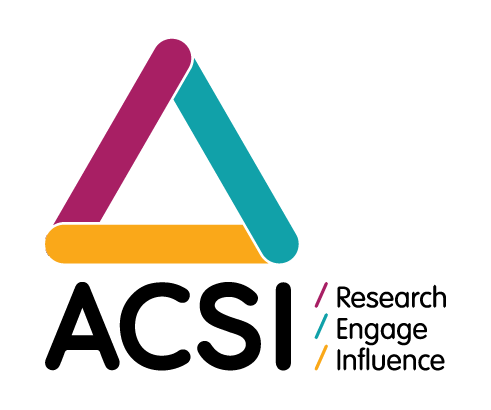
Australian Council of Super Investors (ACSI)
Cbus is a founding member of ACSI, an organisation owned exclusively by its members which exists to provide a strong, collective voice on financially-material ESG issues.
ACSI’s research, company engagement, advocacy and voting recommendations support its members in exercising active ownership and strengthening investment outcomes.
This evidence-based approach aims to achieve better financial outcomes through genuine and permanent improvements to the governance and sustainability practices of the companies in which members, including Cbus, invest. These improved outcomes flow through to the beneficiaries who entrust their retirement savings to ACSI members.

Australian Sustainable Finance Institute (ASFI)
Cbus is a member of the Australian Sustainable Finance Institute (ASFI), and our CEO sits on the ASFI Board as its Chair. ASFI was established in July 2021 to coordinate and drive the growth and credibility of sustainable finance in and from Australia, working collaboratively across the financial sector, government, regulators, civil society and academia. Its members are Australian banks, asset owners, asset managers, insurers and financial services companies who are committed to ASFI’s vision and willing to contribute to sustainable and impactful solutions.

The ESG Benchmark for Real Assets
Cbus is an investor member of GRESB real estate and infrastructure.
GRESB is a mission-driven and industry-led organisation providing standardised and validated Environmental, Social, and Governance (ESG) data to financial markets. Established in 2009, GRESB has become the leading ESG benchmark for real estate and infrastructure investments across the world, used by more than 150 institutional and financial investors to inform decision-making.
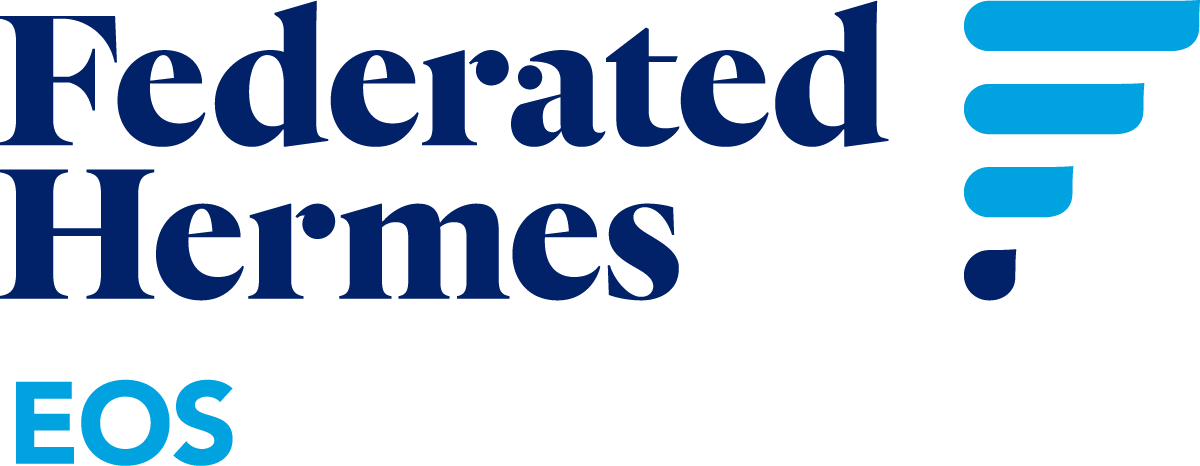
EOS at Federated Hermes Limited
EOS at Federated Hermes Limited (EOS) undertakes engagement with listed global companies on our behalf . EOS’s constructive engagements with corporate boards and executives on environmental, social, governance and strategic issues enable investors to be more active owners of their equity and fixed-income assets, supporting stronger financial performance and better outcomes for society. With almost half of its engagements now more than nine years in duration, EOS is committed to realising positive, enduring change. EOS spearheads collaborative engagements with investors worldwide and its expertise has been called upon to help develop stewardship codes in developed and emerging markets.
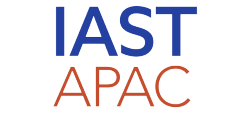
Investors Against Slavery and Trafficking Asia Pacific (IAST APAC)
Cbus is a member of the Investors Against Slavery and Trafficking Asia Pacific (IAST APAC), which is an investor-led multistakeholder initiative convened to promote effective action among companies in the Asia-Pacific region to find, fix and prevent modern slavery, labour exploitation, and human trafficking in their value chains. The initiative also aims to provide an advocacy voice where appropriate and where applicable, for instance through submissions, consultation with policy makers as well as acting as a conduit for members to collaborate on policy advocacy opportunities. Across the Asia-Pacific region, IAST APAC participants seek to work together to foster good practice in investor engagement with companies exposed to modern slavery risks.
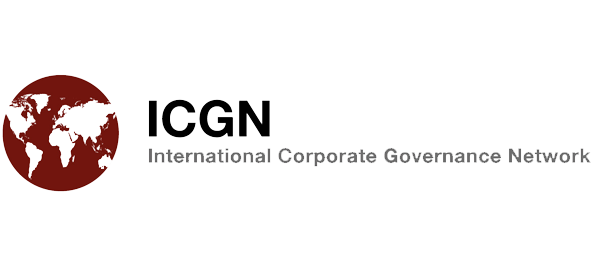
International Corporate Governance Network (ICGN)
Cbus is a member of the International Corporate Governance Network (ICGN). Established in 1995 by the world’s most influential investors, ICGN advances high standards of corporate governance and investor stewardship worldwide, focused on material governance issues in line with members’ fiduciary responsibilities. ICGN is led by investors responsible for assets under management of >US$ 90 trillion and its members are based in more than 40 countries.

Investor Group on Climate Change (IGCC)
Cbus is a member of the Investor Group on Climate Change (IGCC), and a Cbus Board Director also sits on the IGCC Board as its Chair. IGCC is the leading network for Australian and New Zealand investors to understand and respond to the risks and opportunities of climate change. Its members include both countries’ largest superannuation and retail funds, specialist investors and advisory groups. These members are custodians of the retirement funds and savings for more than 15.8 million Australians and millions more New Zealanders, managing more than $4 trillion locally.
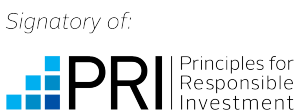
Principles of Responsible Investment (PRI)
Cbus is a signatory of the PRI. The Principles provide a framework for actions the investment community can undertake to incorporate ESG issues into their investment decision-making. This supports our belief that responsible investment is necessary to support sustainable long-term returns. Cbus reports on our responsible investment activities through the PRI Reporting Framework, annually or in accordance with PRI guidelines.

Responsible Investment Association Australasia (RIAA)
Cbus is a member of RIAA, which represents responsible, ethical and impact investors across Australia and Aotearoa New Zealand. RIAA is dedicated to ensuring capital is aligned with achieving a healthy society, environment and economy.
While integration is preferred, there are circumstances where we may consider exclusion of a sector or a specific asset type or stock from the Fund’s investment portfolio having regard to members’ best financial interests. For Australian or International listed shares, when we invest directly in those shares (either through our internal or external investment managers), we exclude direct investments in the following (subject to the exceptions set out further below):
(Controversial weapons)3
Applies to companies which have direct involvement in:
(Tobacco manufacturing)4
Applies to companies deriving 5% or more of their revenue from involvement in manufacturing and production of traditional tobacco products including cigars, blunts, cigarettes, beedi, kretek, smokeless tobacco, snuff, snus, chewing tobacco, as well as e-cigarettes. E-cigarettes include devices designed to resemble a cigarette containing a nicotine-based liquid that is vaporised and inhaled, and used to stimulate tobacco smoking (also called vapes, e-hookahs, vape pens, tank systems, mods, and electric nicotine delivery systems or ENDs). These bracketed terms are known as the Investment Exclusions.
3 Definition provided by Morningstar Inc. Sustainalytics®.
4 Definition provided by Institutional Shareholder Services Australia Pty Ltd.
For the purposes of the Investment Exclusions, direct investment means investment in Australian or International listed shares where we or our custodian (on our behalf) directly owns the relevant shares (and as a result, we can directly control what shares are and are not held).
For all other investments (including in the case of indirectly held Australian or International shares), we seek to apply equivalent investment exclusions where possible or relevant. This depends on the nature of the investment or the investment structure, for example:
There may be circumstances which result in holdings in companies which are subject to the Investment Exclusions. This may occur, for example:
Where a company becomes subject to an exclusion, we will seek to exit these holdings if possible and in a manner consistent with members’ best financial interests, taking into account matters such as alternative available options, liquidity, market conditions and investment fund structure.
We are a signatory of the Tobacco-Free Finance Pledge.
Our key areas of focus
Our current portfolio-wide priorities are climate change, nature and biodiversity loss, modern slavery, workplace health and safety, and investing in the real economy.
We believe that climate change is one of the most significant challenges we face as a society today. Climate change creates both risks and opportunities that we need to assess and understand to achieve the best financial outcomes for our members. We also need to consider how the balance of risks and opportunities may change depending on how the world responds to climate change, and how successful we are at limiting global warming.
We believe that a fair and fast transition to a low carbon economy will generate the best opportunities for our members, through supporting risk-adjusted investment returns, the creation of new jobs, and helping to reduce pressure on the cost of living. Achieving this will require participation of governments, business, investors and industry, and a focus on coordination and real emissions reduction.
We have developed an initial internal climate strategy to replace our roadmap that closed in June 2024. This initial strategy is focused on preparing Cbus for mandatory climate-related disclosures (AASB S25). We currently have a set of climate change goals. Learn about our goals here.
Each year we disclose our climate change activities against the Task Force on Climate-related Financial Disclosures guidance in our Responsible Investment Report (PDF).
We believe that nature and biodiversity loss present significant financial risks to our portfolio, our economy and society. The issue is also closely connected to climate change, meaning that efforts to protect and restore nature and biodiversity can help us address this other substantial source of risk.
For more information about our nature and biodiversity actions over the year see our Responsible Investment Report (PDF).
We have long recognised the value of human capital within organisations. Our focus has extended to understanding and mitigating the risk of modern slavery within our investment supply chain, whilst also seeking to safeguard labour rights and promote safe working environments for people.
We prepare a Modern Slavery Statement annually in line with our obligations under the Modern Slavery Act 2018 (Cth). This statement relates to both our operations and our investments, and our approach continues to evolve, reflecting both regulatory developments and our commitment to responsible investment. View our most recent Modern Slavery Statement (PDF).
Safety disclosures and practices provide insights into a company’s operational performance and culture. Serious safety incidents have a significant personal cost to employees and their families and financial costs to employers. They can impact productivity and performance and expose the company to compensation, litigation, and reputational damage. Safety considerations form part of the due diligence process for relevant assets, risk committee reporting, and our engagement with companies, which helps inform our voting.
Cbus Property
Cbus Property7 has strong foundations in the building and construction industry, with a proven track record as one of Australia’s leading integrated property investors and developers.
Sustainability is a core principle in how Cbus Property develops and manages our assets. This is reflected in a legacy of office, retail and residential buildings that are designed to deliver positive environmental, social and economic outcomes.
By embedding sustainable practices throughout the development process, Cbus Property is building for the long term. Our members can see their super savings at work in Australia – creating jobs, driving economic activity and delivering future-proofed sustainably designed assets to provide strong, stable returns. Read more on Cbus Property’s website and Sustainability page.
7Cbus Property Pty Ltd is a wholly-owned entity of Cbus Super and is responsible for the development and management of a portfolio of Cbus Super’s property investments.
Investing in renewable infrastructure
We aim to support Australia’s transition to a low-carbon economy through our investments in renewable energy infrastructure. The approval of our equity stake in Atmos Renewables (Atmos) is a recent example. Atmos is focused on investing in both the development assets and operational assets across wind, solar, and battery storage. The portfolio currently has assets located in multiple states and is supporting Australia’s future energy needs, whilst delivering reliable, long-term returns for members.
Read more about our investments in renewables in our Investment Spotlight.
Being transparent
We measure our activities and report on our progress, so our members can be confident that we do what we say we do.
You can read more about our responsible investment activities and outcomes in:
The ESG Leader Rating is earned by super funds that perform Environmental, Social and Governance (ESG) principles to a high level, while having a track record of strong investment performance.
The assessment considers whether funds have declared a strong commitment to ESG principles and are transparent about their operations, voting and investments.
View our awards and ratings.
